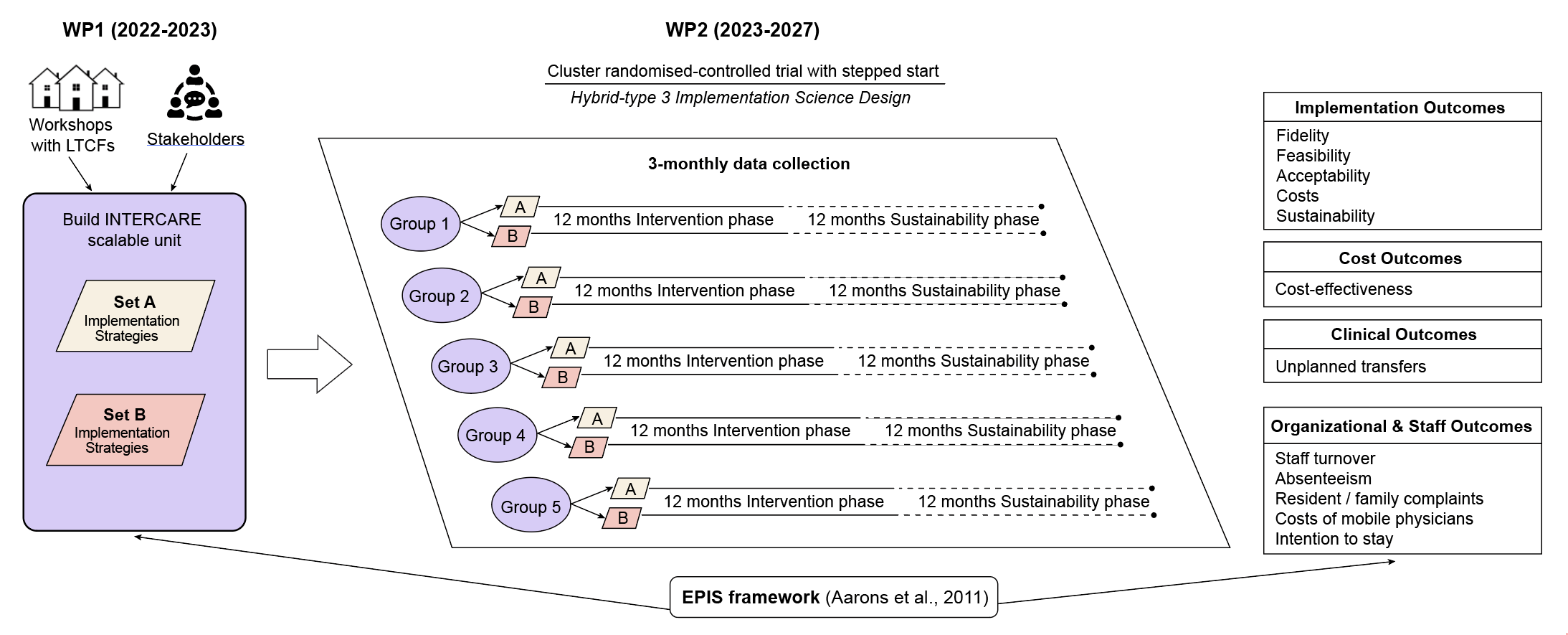We are currently in work package 1 (WP1) and are adapting the INTERCARE core components as well as the implementation strategies of INTERCARE.
Work package 1: Participatory development of implementation strategies (2022 – 2023)
In work package 1 (WP1) the INTERCARE model will be reviewed and tailored based on the experiences collected during the first project (e.g., adaptation to the INTERCARE nurses’ curriculum based on new evidence). Also, less resource-intensive implementation strategies compared with the strategies used for INTERCARE will be developed to be tested in work package 2 (WP2). This may involve, for example, changing the duration, frequency or form, or omitting strategies and replacing them with less burdensome ones. The development will build on a theory-driven contextual analysis that updates factors already identified in the first INTERCARE study that hinder and promote implementation.
The update and development are done in a participatory approach with a group of residential LTC facilities and a stakeholder group. For the LTC facility group, both facilities from the first round and facilities with interest in INTERSCALE will be invited, with the goal of identifying their needs and updating these, or developing, both the INTERCARE model and implementation strategies appropriate to the context. A stakeholder group will be formed by inviting those who participated in the first study and further external stakeholders as needed (e.g., representatives from policy, government, providers, professional groups, resident groups).
Work package 2: Implementation of INTERCARE and evaluation of implementation strategies (2023 – 2026)
In work package 2 (WP2), INTERCARE will be implemented in a cluster-randomized controlled trial in approximately 40 residential LTC facilities in German-speaking Switzerland. The participating LTC facilities will be randomly assigned to two study groups: Both groups will receive the INTERCARE intervention; LTC facilities in the first group will use implementation strategies analogous to the first run of INTERCARE, but a less costly variant of implementation strategies will be implemented in the second group. The study will start in 2024 and the intervention period will last 12 months per LTC facility (staggered start).
The evaluation will examine the effectiveness of the different implementation strategies. In particular, implementation results, e.g. fidelity of implementation and acceptance of the core components of INTERCARE, but also clinical outcomes, i.e. number of unplanned transfers. How much implementation costs from the perspective of the research group and the LTC facilities and which combination of implementation strategies is more cost-effective will be examined. In addition, acceptability and feasibility of the implementation strategies will be surveyed and the sustainability of the model will be measured 12 months after the end of the study.



